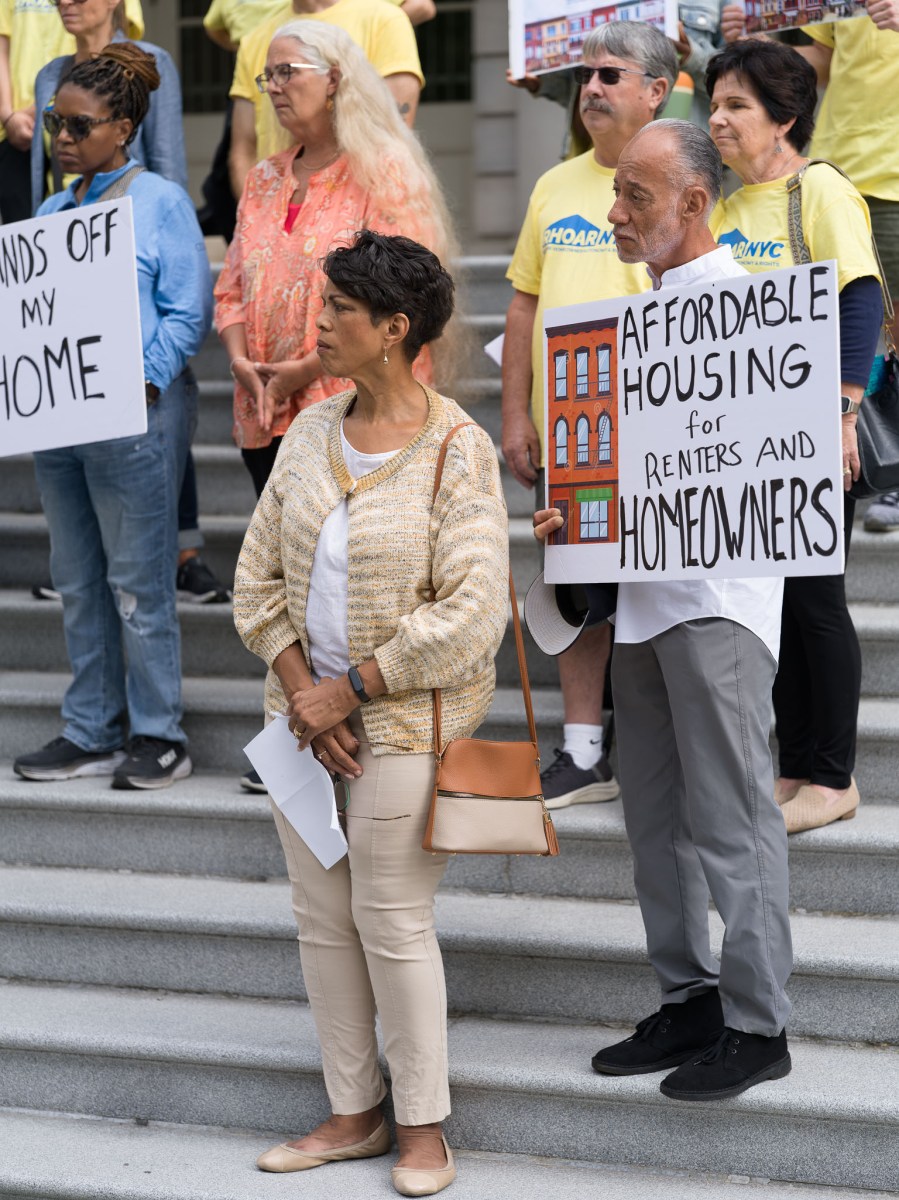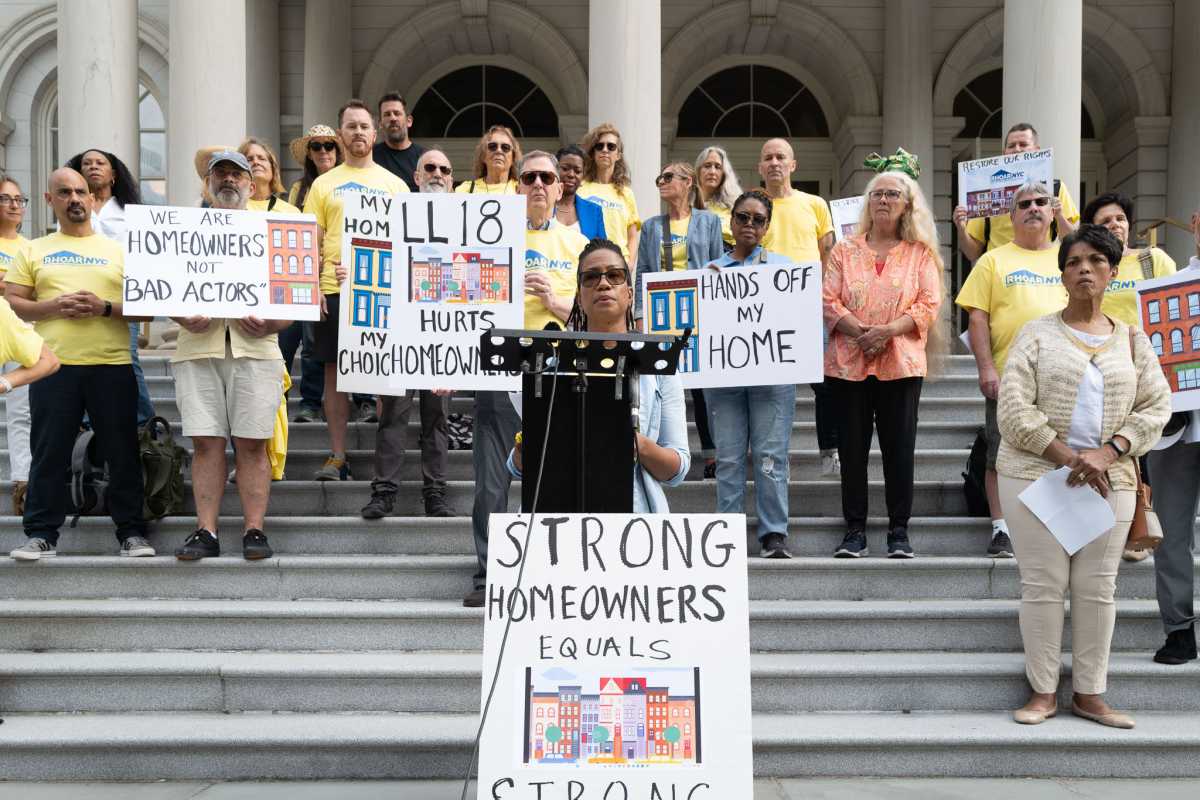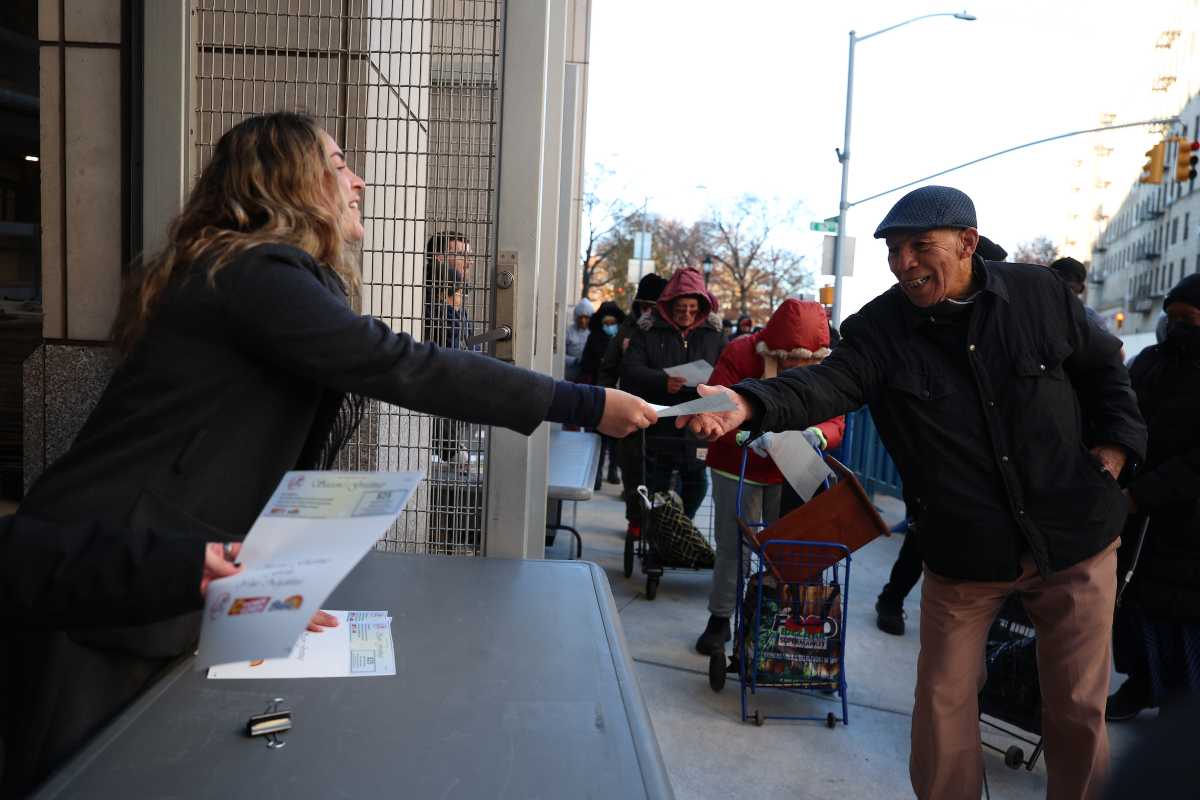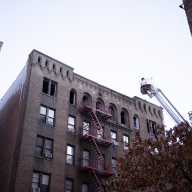On Tuesday, September 17, New York City homeowners gathered outside City Hall to protest the city’s short-term rental regulations, marking one year since the controversial rules took effect. The rally, organized by RHOAR NYC (Restore Homeowner Autonomy & Rights), highlighted the unintended consequences of Local Law 18 on small property owners.
Local Law 18, which went into effect last year, requires hosts to register with the Mayor’s Office of Special Enforcement before listing or renting out their homes for short-term stays. The law prohibits short-term rentals in most apartment buildings and restricts rentals of less than 30 days to situations where the host is present, allowing only two paying guests at a time.
RHOAR NYC, representing one and two-family homeowners across the five boroughs, argues that these restrictions, while necessary to stop the “bad actors” keeping apartments off the market and causing safety issues in large buildings, have failed to address the housing crisis as intended. Instead, they claim it has stripped crucial income from homeowners who relied on short-term rentals to maintain their properties and stay in their communities.
Sandra Sanchez and Joseph Muller, Bronx residents and RHOAR members, exemplify the struggles faced by many homeowners. “Short-term rental had been our plan for keeping our family home – our forever home – and aging in place in the community where we grew up and raised our own children,” they wrote in a letter to Mayor Eric Adams.
RHOAR is calling for specific updates to Local Law 18. They propose allowing home sharing and short-term rentals in owner-occupied one- and two-family homes, permitting these homeowners to register full units without the two-person limit or safety lock restrictions, and allowing them to operate provisionally during the registration process.
The organization points to a big loophole in the law: none of these short-term rental restrictions apply to Class B buildings, like the new Ritz Carlton residences downtown. If you can afford a luxury apartment in a hotel building, you can rent out short-term with no restrictions.
The organization’s membership reflects the diversity of New York City, with 50% being people of color, 55% retired, unemployed, or self-employed, and 25% earning less than the city’s median income. Many are long-time residents who view short-term rentals as a lifeline in the face of rising costs.

Critics of the current regulations argue that they disproportionately impact middle-class homeowners while doing little to address larger-scale housing issues. “The City is unjustly and incorrectly placing the burden of solving the housing crisis on small homeowners, when we are just trying to survive ourselves,” Sanchez and Muller stated.
The rally comes amid growing debate over the effectiveness of short-term rental regulations in major cities. While supporters argue these laws help preserve long-term housing and neighborhood character, opponents contend they infringe on property rights and economic opportunities for residents.
As the one-year mark of Local Law 18’s implementation passes, the impact of New York City’s short-term rental regulations remains a contentious issue. With homeowners like Sanchez and Muller facing difficult decisions, the rally at City Hall aimed to bring renewed attention to the plight of small property owners caught in the crossfire of housing policy debates.
Brooklyn Chamber of Commerce was also present at the rally. President Randy Peers has gone on record stating that Brooklyn’s local businesses are suffering as a result of the law as well.
The Mayor’s office has not yet responded to requests for comment on the rally or potential amendments to Local Law 18. As the situation unfolds, New Yorkers on all sides of the issue will be watching closely to see how the city balances the needs of homeowners, the housing market, and the broader community.
The most helpful thing for supporters to do is send a letter to their City Council member saying they support small homeowners and updating the short-term rental regulations. RHOAR has a simple action tool on its website.
Read More: https://www.amny.com/sponsored/




































